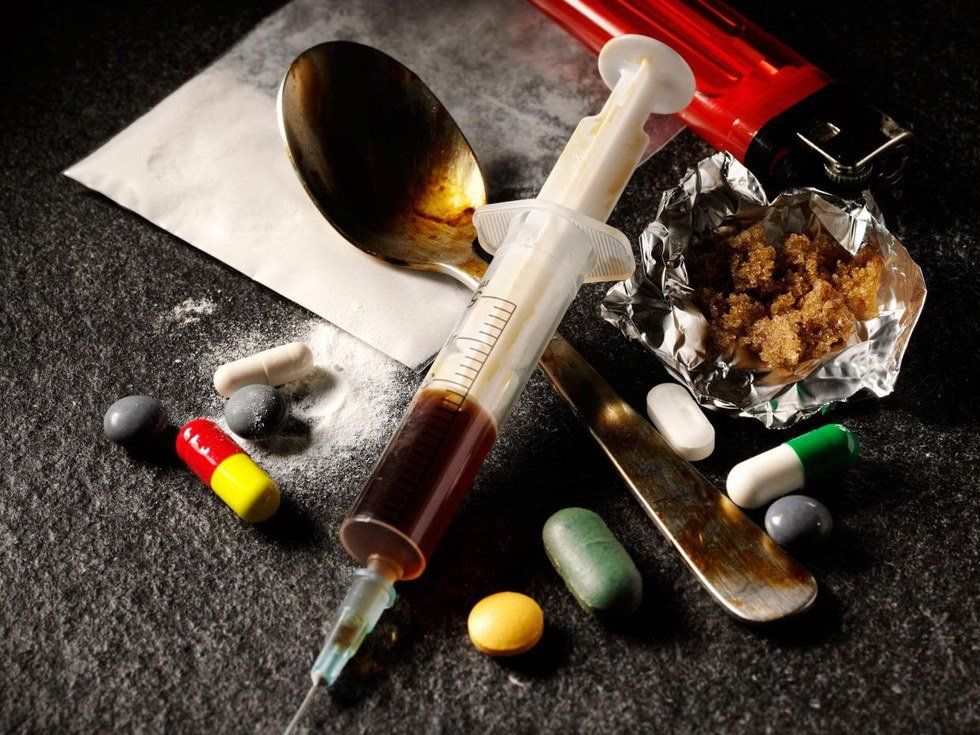Heroin is certainly the buzzword lately.
While the drug itself is nothing new, the problem is evolving and growing. Everyone is talking about the crisis; measuring in numbers narcanned and tallying overdose victims. The epidemic is real and it's no longer creeping into suburbia; it's running through it.
Last week was National Opioid Week and leaders in my country assembled an event to raise awareness of the heroin problem in our community. The meeting brought together representatives from the FBI, DEA and US Attorney's office as well as local councilpersons, judges, prosecutors, police officers, agency and mental health representatives, school superintendents, volunteers, and citizens. The object of the event was to create a forum of discussion about what is being done and what can be done in our region to combat the issue.
This event also included a viewing of the FBI and DEA's video, "Chasing the Dragon," a 50-minute documentary sharing the stories of six heroin addicts and two mothers who lost a child to this battle. I had heard good things about this video; that it was eye-opening and informative. With the bounds of advancements in medicine, neuropsychology, addiction research and mental health services, I was excited to see how the FBI and DEA would incorporate that knowledge into the video for a truly enlightening experience. After all, the 'war on drugs' has been raging for decades, so by now we should be hearing something new from the government, right?
It only took three minutes into the movie for me to realize that, sadly, this was going to be the same thing I've heard over and over throughout the years.
If you have some time, do watch the video. For certain audiences, I would say it's appropriate for the FBI/DEA's intent. That being said, their intent is clear, unidirectional and biased.
Here are some main messages in the video which make it clear that the government has it all wrong:
1. Everyone who smokes pot will end up an addict.
We've heard this for years and even though research shows that this isn't true, the government still likes to slip that sentiment into the video, albeit indirectly. Out of the five addicts interviewed, the video starts four of their stories off by saying things like "it started with pot", or showing which age the person started using marijuana. The video even highlights the fact that most heroin users also use another drug (no shit). It does not, however, make the distinction that not every person who uses a drug will end up using heroin. There is not a direct drug crisis pipeline which starts with smoking pot and ends with severe addiction. We need to stop acting like that is the problem and start learning more about the link here which is missing. The link that causes one person to try a drug once and never pick it up again when another can try the same drug and be controlled by it for the rest of their life.
2. The best way to keep kids from doing drugs is to scare them.
This video is a scare tactic. It echoes the last thing that kids need: scary adults dressed in their suits and ties, standing at the top of their pulpits screaming the fear of God into kids. The FBI and DEA's intent of this video was to increase education about the consequences of using heroin and show kids what can happen to them if they start using. It sounds good in theory, but let's be real...nothing scares kids anymore. Kids have been hearing this for years: "if you do drugs, you will go to jail or you will die". I remember hearing that when I was younger and it sure as hell didn't scare me away. Teachers, parents, and family all said the same thing and yet we still found their way down the same paths of drug and alcohol abuse. Judges tried to scare me with sentencing, I went to classes and treatment centers, I cried at altars week after week and listened to the same people tell me how "worried" they were about where my life was heading. None of it scared me. None of it made any difference.
3. They think the drug problem is about drugs.
We have a history of blaming the 'other' and overlooking our own faults. Instead of taking a good look at how our culture has facilitated the issue by neglecting mental health, how media has sensationalized drug culture and how the greed of Big Pharma has cost thousands their lives, we go after the drug dealers. Policing of drug trafficking is important, but it's not the solution to the bigger picture. The problem is not the availability of drugs. The problem is that we're not taking responsibility for the reasons why the demand for drugs is so overwhelming. Kids are looking to escape the growing pressures in life, people aren't able to afford health care for psychotropics and counseling, people are stressed and need a release, kids are bored, parenting skills are sorely lacking, people don't connect anymore, kids don't feel like they fit in, the nation is over-medicated, it's damn near impossible to break the cycle of poverty...the reasons for drug abuse could go on and on. Yet, the country overlooks those issues. Maybe it's time to stop investing all of our energy and resources in trying to stop the bad guys and instead start investing in building a better country to live in which empowers people to strive and be able to achieve rather than wanting to escape.
It's time to stop chasing the dragon and learn to outsmart it.





















